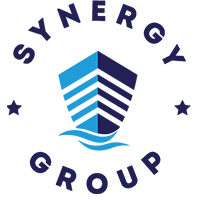
Regulatory frameworks are constantly developing as research into alternate fuels continues. To protect their investments for the future, shipowners and operators must stay current on developing policies, safety requirements, and compliance methods.
Using cryogenic fuels or dangerous compounds necessitates substantial training. Any deviation from established protocols can result in a safety issue. Continuous training and certification programs are critical for crew readiness.
With the global shipping industry focusing on sustainability and regulatory compliance, dual-fuel vessel management has evolved as an important part of maritime operations. These vessels, which can run on both conventional fuel (e.g., marine diesel oil, heavy fuel oil) and alternative fuels (e.g., liquefied natural gas (LNG), methanol, hydrogen), provide more fuel flexibility, reduced emissions, and improved operating efficiency. Managing these vessels necessitates a multifaceted approach that considers fuel efficiency, safety, compliance, and cost-effectiveness.
Expansion of Alternative Fuel
While LNG remains the major alternative fuel, the industry is looking into methanol, ammonia, and hydrogen as potential long-term solutions. These fuels offer even reduced emissions and compliance with future IMO rules.
Digitalisation & Automation
Advanced digital tools, such as AI-powered fuel management systems, predictive maintenance, and automation, will improve efficiency in dual-fuel vessel operations. Real-time fuel usage monitoring and automated engine tuning improve performance while reducing pollution.
Green finance and incentives.
Governments and financial institutions are boosting green shipping by providing subsidies, tax breaks, and favourable loan terms for dual-fuel vessel investments. The Poseidon Principles and the EU Emissions Trading System (ETS) are shaping finance models for sustainable shipping.
Collaborative Infrastructure Development
Ports and stakeholders are making investments to enhance fuel supply chains, with projects focusing on LNG bunkering, hydrogen hubs, and ammonia storage facilities. Improved infrastructure will increase the accessibility and use of dual-fuel technology.
Visit us at
https://www.synergymarinegroup.com/services/dual-fuel-vessel-management/